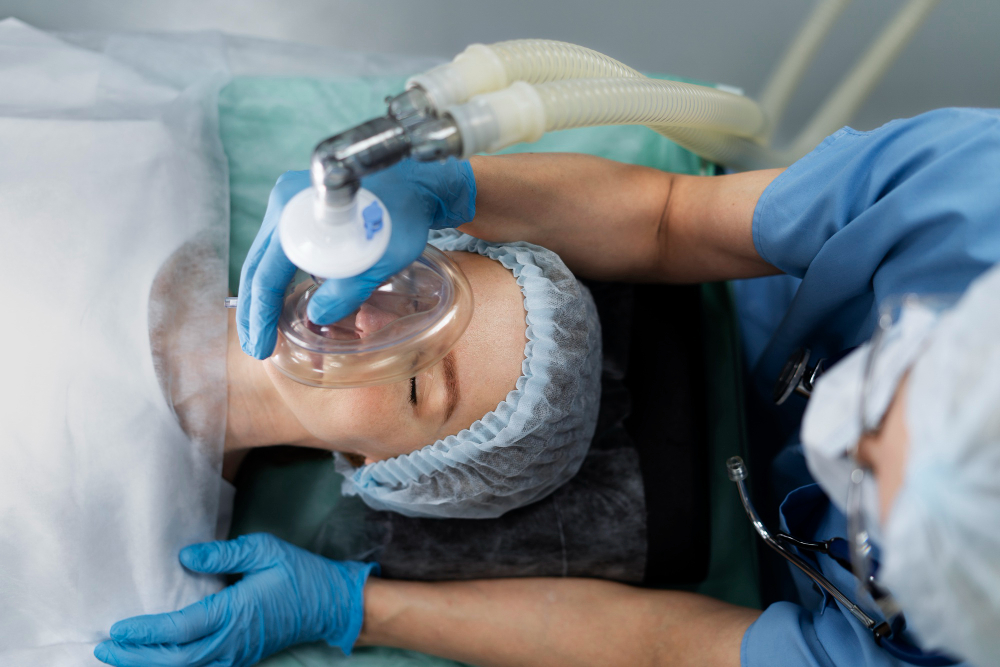Nursing Anesthesia DNP Programs in Massachusetts
Massachusetts stands as a premier destination for aspiring Certified Registered Nurse Anesthetists (CRNAs), offering two distinguished Doctor of Nursing Practice (DNP) programs in nurse anesthesia. As the nursing profession continues its transition to doctoral-level education for advanced practice, these programs prepare highly skilled clinicians to meet the growing demand for anesthesia services across diverse healthcare settings.
Overview of DNP in Nurse Anesthesia
The Doctor of Nursing Practice in Nurse Anesthesia represents the terminal practice degree for nurse anesthetists, combining advanced clinical training with leadership development and evidence-based practice preparation. This educational pathway prepares registered nurses to provide anesthesia care across the lifespan and in various clinical environments, from routine surgeries to complex procedures requiring specialized anesthetic management.
Massachusetts DNP Programs: Leading Institutions
Boston College – Connell School of Nursing
Boston College offers a comprehensive DNP in Nurse Anesthesia program that has established itself as one of the top training programs in the region. The program is designed for registered nurses seeking to advance their careers in anesthesia practice through rigorous academic and clinical preparation.
Program Structure:
- Total Credits: 100 credits (49 core courses, 51 specialty and clinical practicum)
- Duration: Full-time, intensive program
- Format: On-campus with extensive clinical rotations
Admission Requirements:
- Bachelor of Science in Nursing (BSN) degree
- Current, unrestricted U.S. RN license
- Massachusetts RN license required for matriculation
- Minimum of one year critical care experience as a registered nurse
- Strong academic performance and competitive GPA
Clinical Training: The program provides extensive hands-on experience through partnerships with Anesthesia Associates of Massachusetts, offering students exposure to diverse clinical settings and patient populations. This collaboration ensures graduates receive comprehensive training across various subspecialties and practice environments.
Northeastern University – Bouvé College of Health Sciences
Northeastern University’s DNP in Nurse Anesthesia program is housed within the Bouvé College of Health Sciences, emphasizing interdisciplinary collaboration and innovative healthcare delivery models. The program focuses on developing clinicians with advanced skills in anesthesia nursing practice.
Program Highlights:
- Emphasis on interdisciplinary collaboration
- Advanced clinical training in anesthesia practice
- Focus on evidence-based practice and leadership development
- Integration with other health sciences programs
Educational Philosophy: Northeastern’s program prioritizes the development of skilled anesthesia clinicians educated at the doctoral level, preparing graduates to meet evolving healthcare demands and contribute to the advancement of the nursing profession.
Career Outlook and Opportunities
The demand for Certified Registered Nurse Anesthetists continues to grow significantly across Massachusetts and nationwide. Several factors contribute to this positive outlook:
Market Demand:
- Increasing surgical volumes due to aging population demographics
- Expanding access to healthcare services
- Growing recognition of CRNAs’ cost-effective, high-quality care delivery
- Rural and underserved area shortages requiring CRNA expertise
Practice Settings: Graduates can pursue opportunities in various healthcare environments, including:
- Academic medical centers and teaching hospitals
- Community hospitals and surgical centers
- Ambulatory surgery centers
- Pain management clinics
- Rural healthcare facilities
- Military and Veterans Affairs healthcare systems
Compensation and Benefits: Massachusetts CRNAs typically enjoy competitive compensation packages reflecting their advanced education and specialized skills. The state’s robust healthcare system and proximity to leading medical institutions provide numerous career advancement opportunities.
Admission Considerations and Preparation
Both Massachusetts programs maintain highly competitive admission standards, requiring prospective students to demonstrate academic excellence, clinical proficiency, and professional commitment.
Preparation Strategies:
- Gain substantial critical care experience, preferably in intensive care units
- Maintain strong academic performance with emphasis on science courses
- Develop leadership experience and professional involvement
- Obtain relevant certifications (CCRN, PCCN)
- Engage in continuing education and professional development activities
Application Timeline: Prospective students should begin preparation well in advance, typically 12-18 months before intended enrollment. Application deadlines vary between institutions, with many programs recommending submission by early summer for fall admission.
Program Accreditation and Quality Assurance
Both Massachusetts programs maintain accreditation through the Council on Accreditation of Nurse Anesthesia Educational Programs (COA), ensuring adherence to rigorous educational standards and preparing graduates for national certification examination success.
Quality Indicators:
- High national certification examination pass rates
- Strong clinical training partnerships
- Experienced faculty with advanced credentials
- Comprehensive curriculum meeting national standards
Financial Considerations
DNP programs in nurse anesthesia represent significant educational investments, with tuition and associated costs varying between institutions. Prospective students should explore various funding options, including:
- Federal financial aid programs
- Scholarship opportunities specific to nurse anesthesia education
- Employer tuition assistance programs
- Military educational benefits for qualifying individuals
- Professional organization scholarships and grants
Massachusetts offers exceptional opportunities for registered nurses pursuing advanced practice careers in anesthesia through its two distinguished DNP programs. Boston College and Northeastern University provide comprehensive educational experiences combining rigorous academic preparation with extensive clinical training, preparing graduates for successful careers as Certified Registered Nurse Anesthetists.
The state’s robust healthcare infrastructure, combined with growing demand for anesthesia services, creates favorable conditions for CRNA career development and professional growth. Prospective students should carefully evaluate program offerings, admission requirements, and career objectives when selecting the most appropriate educational pathway for their professional goals.
As the healthcare landscape continues evolving, Massachusetts-trained CRNAs will play increasingly vital roles in delivering safe, effective anesthesia care across diverse patient populations and clinical settings. The investment in doctoral-level education positions graduates for leadership roles in advancing the nursing profession and improving patient outcomes through excellence in anesthesia practice.



